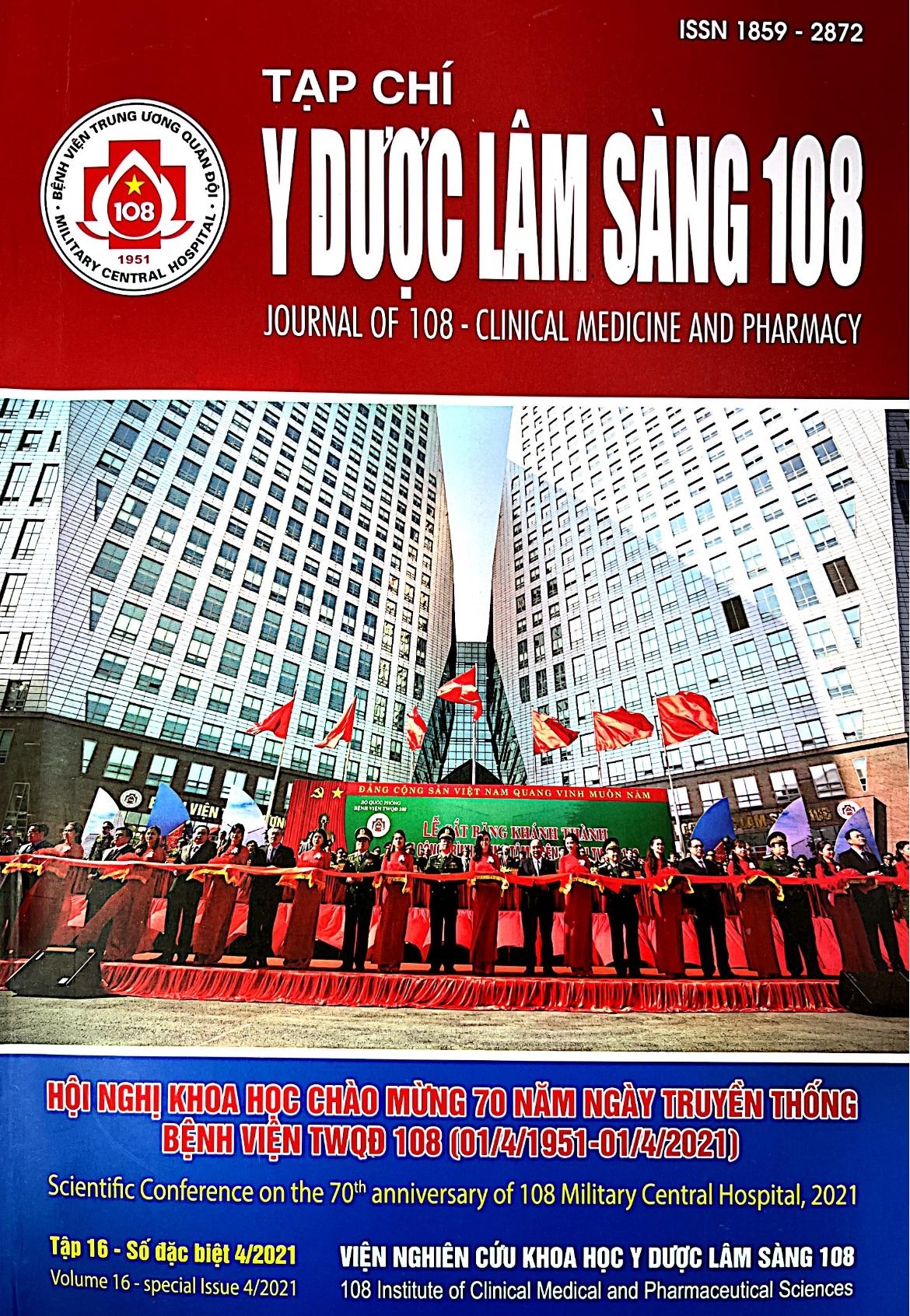Evaluation of the results of laparoscopic surgery for rectal cancer after preoperative long-course chemoradiotherapy treatment
Main Article Content
Keywords
Abstract
Objective: To evaluate the results of laparoscopic surgery for rectal cancer after preoperative long-course chemoradiotherapy. Subject and method: A prospective descriptive study in 235 rectal cancer patients treated with preoperative long-course chemoradiotherapy and laparoscopic surgery at 108 Military Central Hospital from January 2018 to August 2020. These patients were re-evaluated at least 6 weeks after the end of long-course chemoradiotherapy. Assessment of response to clinical and subclinical symptoms before surgery, results of response to disease stage on pathology and results of laparoscopic rectal surgery. Result: The clinical response rate was 82.9%, with 17.8% fully response. The rate of anal sphincter preserving was 84.3%. The rate of laparoscopic lateral pelvic lymph node dissection was 8.1%, of which 21.1% patients had lateral pelvic lymph node metastasis. The rate of postoperative complications was 11.6%. Response assessment on pathology: Reducing the degree of tumor invasion (T) 89.8%, reducing the degree of spread to regional lymph nodes (N) 75.3%. Side effects after long-course chemoradiotherapy were mainly in grade 1 and 2. Conclusion: Laparoscopic surgery treatment for rectal cancer after receiving preoperative long-course chemoradiotherapy was safe and effective. Preoperative long-course chemoradiotherapy reduces the disease stage with less toxicity, and increase the rate of sphincter preservation when combined with laparoscopic surgery.
Article Details
References
2. National Comprehensive Cancer Network (NCCN) (2017) Clinical practice guidelines on oncology. Rectal cancer version 3.2017.pdf.
3. Glynne-Jones R, Wyrwicz L, Tiret E et al (2017) Rectal cancer: ESMO Clinical practice guidelines for diagnosis, treatment and follow-up. Annals of Oncology 28: 22-40.
4. Phạm Cẩm Phương (2013) Đánh giá hiệu quả của xạ trị kết hợp với capecitabine trước mổ trong ung thư trực tràng thấp tiến triển tại chỗ. Luận án Tiến sỹ y khoa, Đại học Y Hà Nội.
5. López-Campos F, Martín-Martín M, Fornell-Pérez R. et al (2020) Watch and wait approach in rectal cancer: Current controversies and future directions. World J Gastroenterol 26(29): 4218-4239.
6. Atef Y, Koedam TW, van Oostendorp SE et al (2019) Lateral pelvic lymph node metastases in rectal cancer: A systematic review. World J Surg 43(12): 3198-3206.
7. Rullier E, Laurent C, Bretagnol F et al (2005) Sphincter-saving resection for all rectal carcinomas. Ann Surg 241(3): 465–469.
8. Saito N, Moriya Y, Shirouzu K et al (2006). Intersphincteric resection in patients with very low rectal cancer: A review of the Japanese experience. Dis Colon Rectum 49(1): 13–22.
9. Abraha I, Aristei C, Palumbo I et al (2018) Preoperative radiotherapy and curative surgery for the management of localised rectal carcinoma. Cochrane Database Syst Rev 2018(10).
10. De Bruin AF et al (2008) Preoperative chemoradiation with capecitabine in locally advanced rectal cancer. Neth J Med 66(2): 71-76.
 ISSN: 1859 - 2872
ISSN: 1859 - 2872
